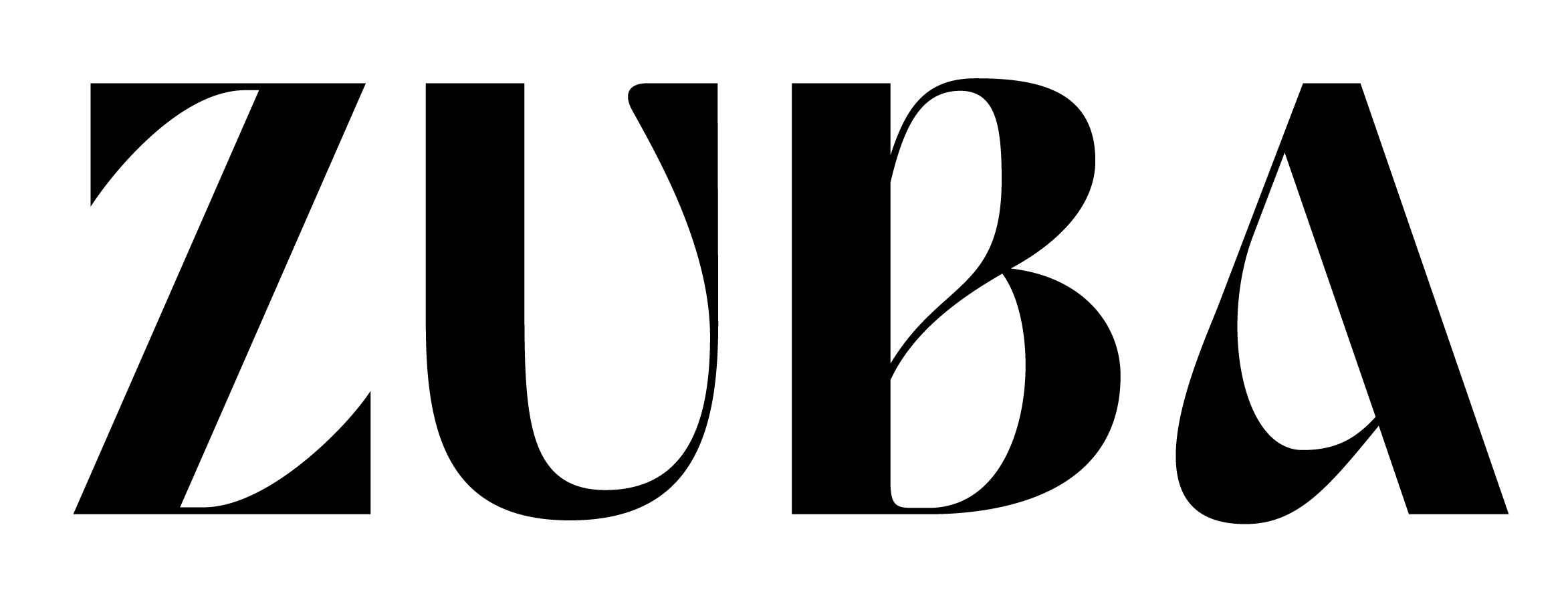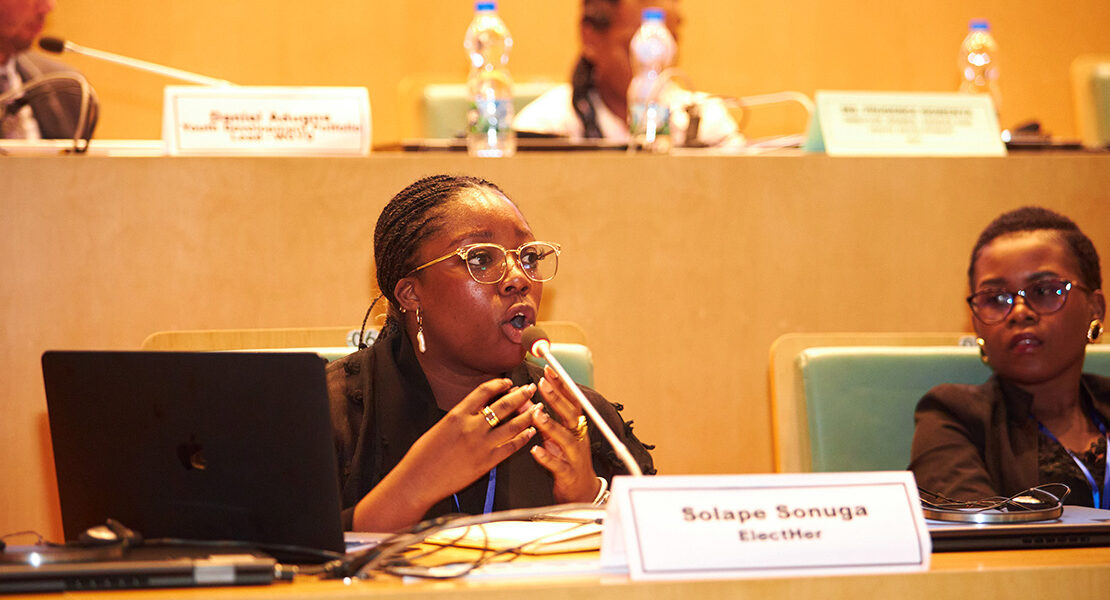Women globally face historic disadvantages in politics, with Africa far from achieving gender parity.
According to the Africa Barometer 2021 report, women constitute only 24 per cent of the 12,113 parliamentarians in Africa, 25 per cent in the lower houses and 20 per cent in the upper houses of parliaments, with lack of political will, economic resources, and deeply entrenched patriarchy cited as some of the biggest impediments to their political participation. Now, ElectHer is tackling this challenge head on.
The Nigerian based nonpartisan NGO, aims to increase women’s political participation in Nigeria and Africa through innovation, technology, and capacity development.
We recently had the opportunity to chat to Solape Sonuga, the Policy and Strategic Partnerships manager at ElectHer. Solape was an active participant at the 4th Specialized Technical Committee (STC) on Youth, Culture, and Sports (STC-YCS4), which took place from May 18-19, 2023, at the African Union headquarters in Addis Ababa.
The conference aimed to foster peer-to-peer and inter-country learning among African youth and experts, addressing the most pressing issues faced by the continent’s young population.
Q: Your organization, ElectHer, is dedicated to closing the gender parity gap in women’s political participation. What challenges do women face in governance?
A: Women face numerous challenges in governance, particularly due to the male-dominated nature of the field. Access to resources is one of the significant challenges. Women often lack the financial, technical, and social resources necessary to run for political office successfully. Breaking into a male-dominated field can also be challenging due to societal and cultural norms that question women’s moral standing in politics. Additionally, capacity building and navigating the political landscape can be daunting for women. Other obstacles include acceptance within their communities and the threat of gender-based violence. These challenges, among others, hinder women’s participation in governance.
Q: How is ElectHer addressing these challenges and supporting female leaders?
A: ElectHer implements various initiatives to address these challenges. One notable campaign we conducted was the Agenda 35 campaign during the 2023 Nigerian elections. Through a selection process, we identified young, capable women running for political leadership and provided them with support throughout the political cycle. Another initiative worth mentioning is the Obinri initiative. This project involves organizing an art exhibition where artists create art pieces that convey the stories and emotions related to women’s representation. The proceeds from the art sales are then used to support women running for political leadership. Additionally, we are developing a web-based platform called “Decide to Run,” funded by the African Union civic tech fund and GIZ. This platform serves as an online community for aspiring female political candidates, offering them resources, networking opportunities, and a platform to share their experiences and stories. These are just a few examples of how ElectHer works to support women in politics and public life.
Q: What are some of ElectHer’s key successes?
A: We measure success through small wins and achievements that keep us motivated. For instance, in the recent Nigerian elections, ElectHer supported three women who successfully ran for political leadership. Seeing these women now in positions of power is a significant win for us. Another success is the development and upcoming launch of the “Decide to Run” platform, which will provide a valuable resource for aspiring female political candidates across Africa. Our partnerships with local and international organizations have also expanded our reach and enhanced our initiatives. Lastly, investing in the skill development of women in Nigeria and beyond has been a crucial success for us.
Q: Who are ElectHer’s backers and partners?
A: ElectHer collaborates with both local and international organizations to achieve its objectives. Our partners include the African Union Civic Tech fund and GIZ, who provided funding for the “Decide to Run” platform. We are currently funded by the European Union for some of our initiatives and have worked with the Canadian Fund for Local Initiatives. We have also partnered with private organizations, government entities, including the Nigerian parliament and the office of the Speaker of the House of Representatives. We are always open to partnerships with individuals and organizations that share our vision and are committed to promoting women’s inclusion.
Q: ElectHer was one of the initiatives selected for the AU Civic Tech Fund. How has this opportunity promoted your activities?
A: Oh, it literally has pushed our innovation. I would say that through the Civic Tech Fund, we didn’t just have access to financial resources. We also had access to technical resources and other people in the tech space. For us, it was a fantastic experience because it’s one thing to receive funding and be told to go ahead, but it’s another thing to have technical and financial resources to support our goals. The technical resources provided by the fund helped us gain knowledge and technical know-how, improving what we were building. Additionally, we were able to meet and network with other people in the same space, learn from their experiences, and explore partnerships to make our work better.
Q: You gave a wonderful presentation about ElectHer at the recently concluded 4th STC pre-event. What was the highlight of the event for you?
A: Personally, I’m a young person. And so having the opportunity to hear from other young people about the realities that they face in their respective countries to kind of measure that with the things that I faced as a young woman living in Africa, I think that was a fantastic opportunity. And having the African Union bring us together to hear from us and take the recommendations that we give and then run with it is such an important thing.
Q: Why is it important to engage young people in discussions regarding the development of the continent?
A: You know, everybody always says that young people are the leaders of tomorrow, but literally we are the leaders of today. Engaging young people with fresh perspectives on how to deal with issues is crucial as their opinions and voices are vital for development. It allows them to express their perspectives, contribute innovative ideas, and shape the future of their communities and nations.
Q: What are ElectHer’s future plans?
A: Looking ahead, ElectHer aims to scale its initiatives and expand its impact. We plan to take the ElectHer Future Lawmakers Program to a Pan-African level, providing training and support for women across Africa interested in political leadership. We also intend to scale the Obinri art project to another African country, raising funds and awareness for women running for office. Additionally, we aim to scale with support of the African Union civic tech fund to encompass the entire continent, fostering technological innovation and collaboration on a broader scale. These plans align with our vision of creating a more inclusive and representative political landscape in Africa.

